The British Empire
The World Wars (1914–1945)
By the turn of the twentieth century, fears had started to develop in Britain that it would never again have the capacity to protect the metropolis and the total of the domain while in the meantime keeping up the strategy of "mind blowing isolation".Germany was quickly ascending as a military and mechanical power and was currently observed as the undoubtedly adversary in any future war. Perceiving that it was overstretched in the Pacific and debilitated at home by the Imperial German Navy, Britain framed a union with Japan in 1902 and with its old foes France and Russia in 1904 and 1907, individually.
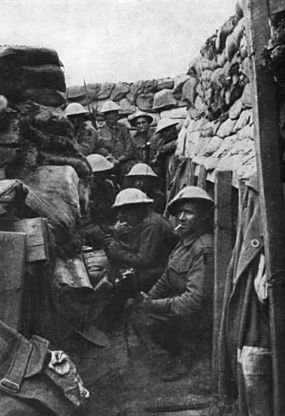
First World War
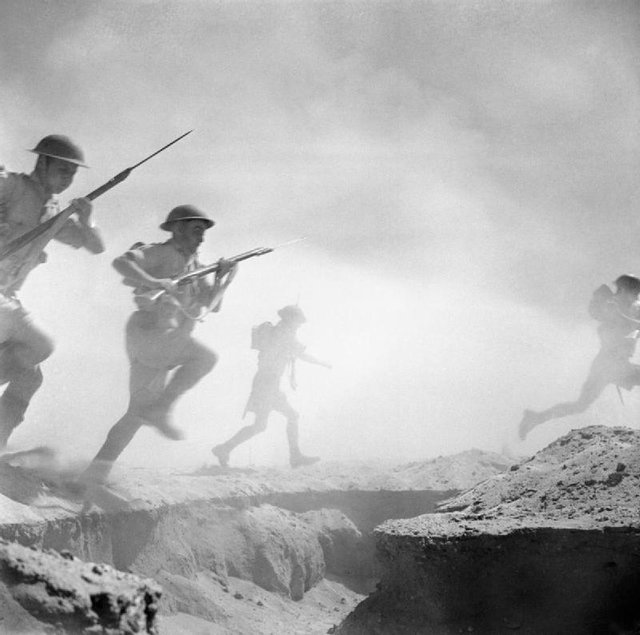
England's feelings of trepidation of war with Germany were acknowledged in 1914 with the episode of the First World War. England immediately attacked and involved the greater part of Germany's abroad states in Africa. In the Pacific, Australia and New Zealand possessed German New Guinea and Samoa separately. Plans for a post-war division of the Ottoman Empire, which had joined the war on Germany's side, were furtively drawn up by Britain and France under the 1916 Sykes–Picot Agreement. This understanding was not unveiled to the Sharif of Mecca, who the British had been urging to dispatch an Arab rebel against their Ottoman rulers, giving the feeling that Britain was supporting the formation of a free Arab state.
The British affirmation of war on Germany and its partners additionally dedicated the states and Dominions, which gave significant military, money related and material support. More than 2.5 million men served in the armed forces of the Dominions, and also a large number of volunteers from the Crown states.
The commitments of Australian and New Zealand troops amid the 1915 Gallipoli Campaign against the Ottoman Empire greatly affected the national cognizance at home, and denoted a watershed in the move of Australia and New Zealand from settlements to countries in their own privilege. The nations keep on commemorating this event on Anzac Day. Canadians saw the Battle of Vimy Ridge in a comparative light.
Under the terms of the closing Treaty of Versailles marked in 1919, the realm achieved its most noteworthy degree with the expansion of 1,800,000 square miles (4,700,000 km2) and 13 million new subjects.The settlements of Germany and the Ottoman Empire were disseminated to the Allied powers as League of Nations orders. England picked up control of Palestine, Transjordan, Iraq, parts of Cameroon and Togoland, and Tanganyika. The Dominions themselves likewise obtained commands of their own: the Union of South Africa increased South-West Africa (cutting edge Namibia), Australia increased New Guinea, and New Zealand Western Samoa. Nauru was made a consolidated command of Britain and the two Pacific Dominions.
Second World War
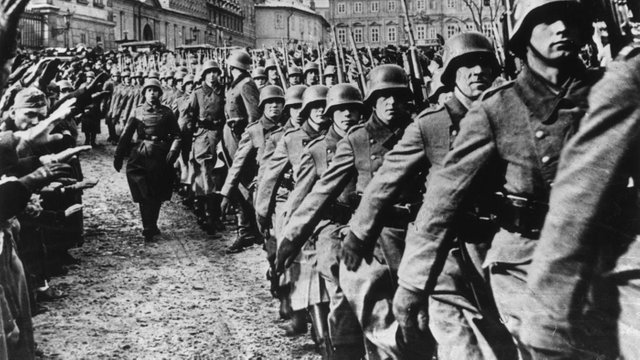
England's revelation of war against Nazi Germany in September 1939 incorporated the Crown states and India yet did not consequently submit the Dominions of Australia, Canada, New Zealand, Newfoundland and South Africa. All soon proclaimed war on Germany, however the Irish Free State remained lawfully unbiased all through the war.
After the German control of France in 1940, Britain and the realm remained solitary against Germany, until the passage of the Soviet Union to the war in 1941. English Prime Minister Winston Churchill effectively campaigned President Franklin D. Roosevelt for military guide from the United States, however Roosevelt was not yet prepared to request that Congress confer the nation to war.In August 1941, Churchill and Roosevelt met and marked the Atlantic Charter, which incorporated the announcement that "the privileges of all people groups to pick the type of government under which they live" ought to be regarded. This wording was questionable with respect to whether it alluded to European nations attacked by Germany, or the people groups colonized by European countries, and would later be translated contrastingly by the British, Americans, and patriot developments.
In December 1941, Japan propelled, with hardly a pause in between, assaults on British Malaya, the United States maritime base at Pearl Harbor, and Hong Kong. Churchill's response to the section of the United States into the war was that Britain was currently guaranteed of triumph and the eventual fate of the realm was sheltered, however the way in which British powers were quickly crushed in the Far East irreversibly hurt Britain's standing and renown as a supreme power.The acknowledgment that Britain couldn't protect its whole domain pushed Australia and New Zealand, which now seemed undermined by Japanese strengths, into nearer ties with the United States. This brought about the 1951 ANZUS Pact between Australia, New Zealand and the United States of America.
Decolonisation and decrease (1945–1997)
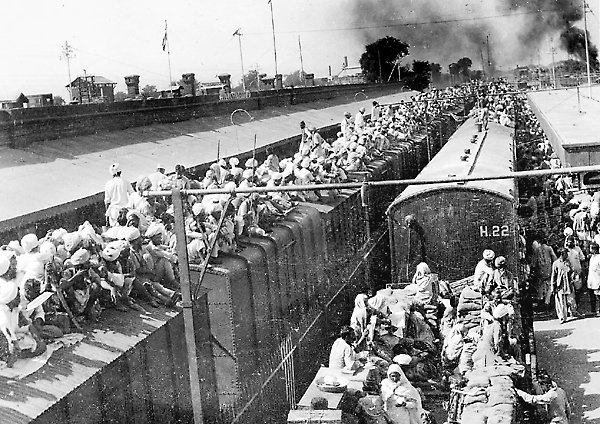
Despite the fact that Britain and the domain developed successful from the Second World War, the impacts of the contention were significant, both at home and abroad. Quite a bit of Europe, a landmass that had commanded the world for a few centuries, was in remains, and host to the armed forces of the United States and the Soviet Union, who now held the adjust of worldwide power.Britain was left basically bankrupt, with indebtedness just deflected in 1946 after the arrangement of a $US 4.33 billion advance (US$56 billion in 2012) from the United States,the last portion of which was reimbursed in 2006.At a similar time, hostile to pilgrim developments were on the ascent in the settlements of European countries. The circumstance was convoluted further by the expanding Cold War competition of the United States and the Soviet Union. On a basic level, both countries were against European expansionism. By and by, in any case, American against socialism beat hostile to dominion, and accordingly the United States upheld the proceeded with presence of the British Empire to keep Communist development in check.The "twist of progress" eventually implied that the British Empire's days were numbered, and in general, Britain embraced an approach of tranquil withdrawal from its settlements once steady, non-Communist governments were accessible to exchange energy to. This was as opposed to other European powers, for example, France and Portugal,which pursued expensive and at last unsuccessful wars to keep their realms in place. Somewhere around 1945 and 1965, the quantity of individuals under British run outside the UK itself tumbled from 700 million to five million, three million of whom were in Hong Kong.
End of realm
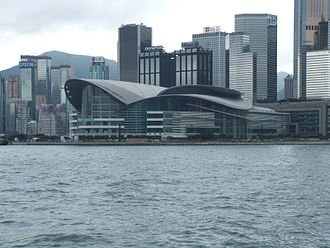
In 1980, Rhodesia, Britain's last African province, turned into the autonomous country of Zimbabwe. The New Hebrides accomplished freedom (as Vanuatu) in 1980, with Belize sticking to this same pattern in 1981. The entry of the British Nationality Act 1981, which renamed the rest of the Crown settlements as "English Dependent Territories" (renamed British Overseas Territories in 2002) implied that, beside a dissipating of islands and stations the procedure of decolonisation that had started after the Second World War was to a great extent total. In 1982, Britain's resolve in safeguarding its staying abroad domains was tried when Argentina attacked the Falkland Islands, following up on a long-standing case that dated back to the Spanish Empire.Britain's eventually fruitful military reaction to retake the islands amid the resulting Falklands War was seen by numerous to have added to turning around the descending pattern in Britain's status as a world power.The same year, the Canadian government separated its last lawful connection with Britain by patriating the Canadian constitution from Britain. The 1982 Canada Act go by the British parliament finished the requirement for British inclusion in changes to the Canadian constitution.Similarly, the Constitution Act 1986 transformed the constitution of New Zealand to disjoin its sacred connection with Britain, and the Australia Act 1986 separated the established connection amongst Britain and the Australian states. In 1984, Brunei, Britain's final Asian protectorate, picked up its autonomy.
In September 1982 the Prime Minister, Margaret Thatcher, set out to Beijing to consult with the Chinese government on the eventual fate of Britain's last major and most crowded abroad domain, Hong Kong. Under the terms of the 1842 Treaty of Nanking, Hong Kong Island itself had been surrendered to Britain in ceaselessness, however most by far of the province was constituted by the New Territories, which had been gained under a 99-year rent in 1898, due to terminate in 1997. Thatcher, seeing parallels with the Falkland Islands, at first wished to hold Hong Kong and proposed British organization with Chinese sway, however this was dismisses by China. An arrangement was come to in 1984—under the terms of the Sino-British Joint Declaration, Hong Kong would turn into an extraordinary regulatory district of the People's Republic of China, keeping up its lifestyle for no less than 50 years. The handover function in 1997 set apart for some ,counting Charles, Prince of Wales,who was in participation, "the end of Empire".
The Legacy
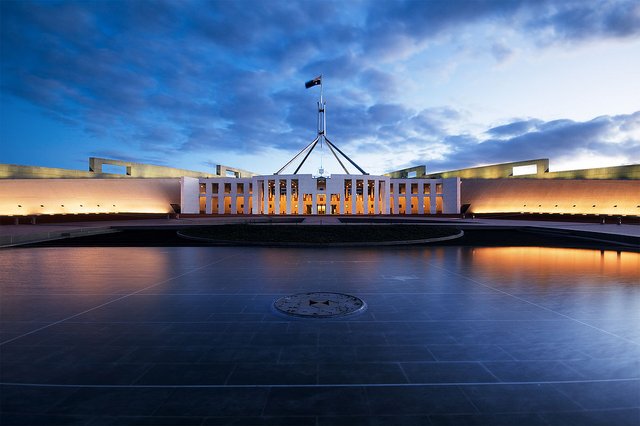
England holds power more than 14 regions outside the British Isles, which were renamed the British Overseas Territories in 2002.Some are uninhabited aside from transient military or logical staff; the rest of self-representing to changing degrees and are dependent on the UK for remote relations and resistance. The British government has expressed its readiness to help any Overseas Territory that desires to continue to freedom, where that is an alternative. English power of a few of the abroad domains is debated by their topographical neighbors: Gibraltar is guaranteed by Spain, the Falkland Islands and South Georgia and the South Sandwich Islands are asserted by Argentina, and the British Indian Ocean Territory is guaranteed by Mauritius and Seychelles.The British Antarctic Territory is liable to covering claims by Argentina and Chile, while numerous nations don't perceive any regional claims in Antarctica.
Most previous British provinces and protectorates are among the 53 part conditions of the Commonwealth of Nations, a non-political, intentional relationship of equivalent individuals, containing a populace of around 2.2 million .
~Thanking You
Ishan Pandey
Source :- https://en.wikipedia.org/wiki/Timeline_of_British_diplomatic_history#1815.E2.80.9396 https://books.google.co.in/books?id=iTZSFcfBas8C&redir_esc=y&hl=en https://en.wikipedia.org/wiki/British_colonization_of_the_Americas
https://upload.wikimedia.org/wikipedia/commons/b/b9/El_Alamein_1942_-_British_infantry.jpg
Nice , The British Empire has defined our history and our present . Thanx for the British Empire series !! GREAT BLOG !!
Downvoting a post can decrease pending rewards and make it less visible. Common reasons:
Submit
Indeed , the British History is responsible for our modern history . There contribution to man kind would never be forgotten .
Downvoting a post can decrease pending rewards and make it less visible. Common reasons:
Submit